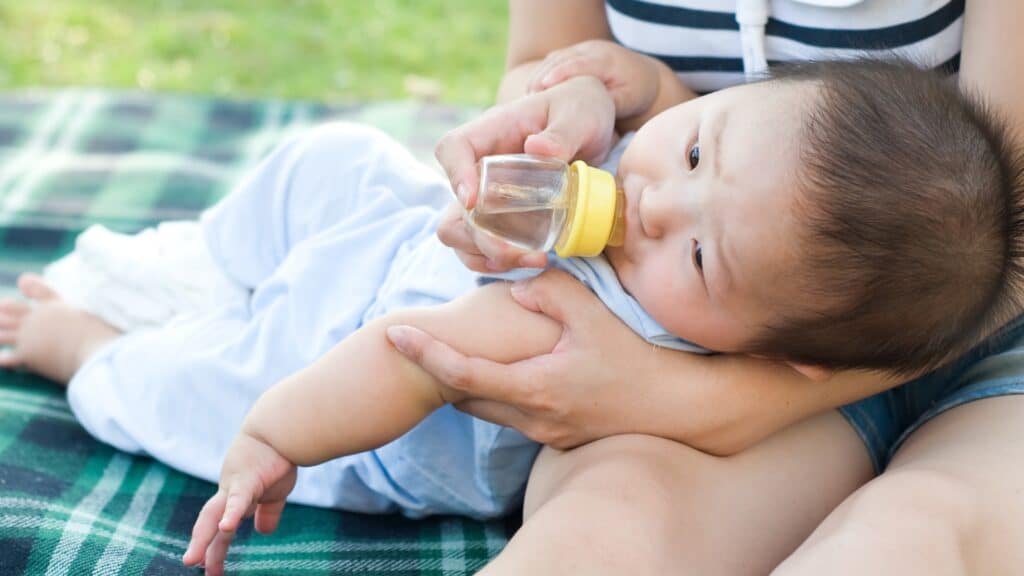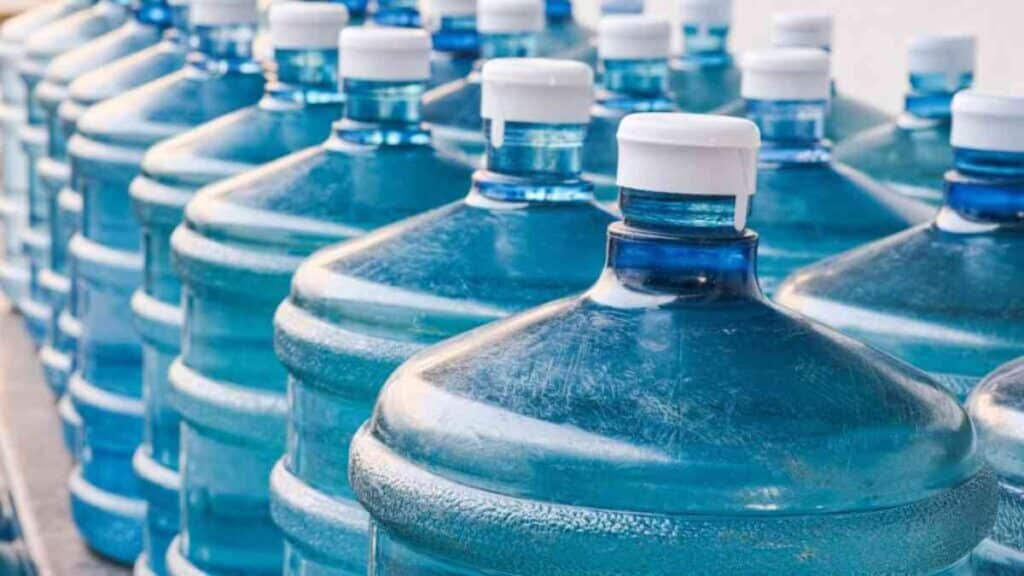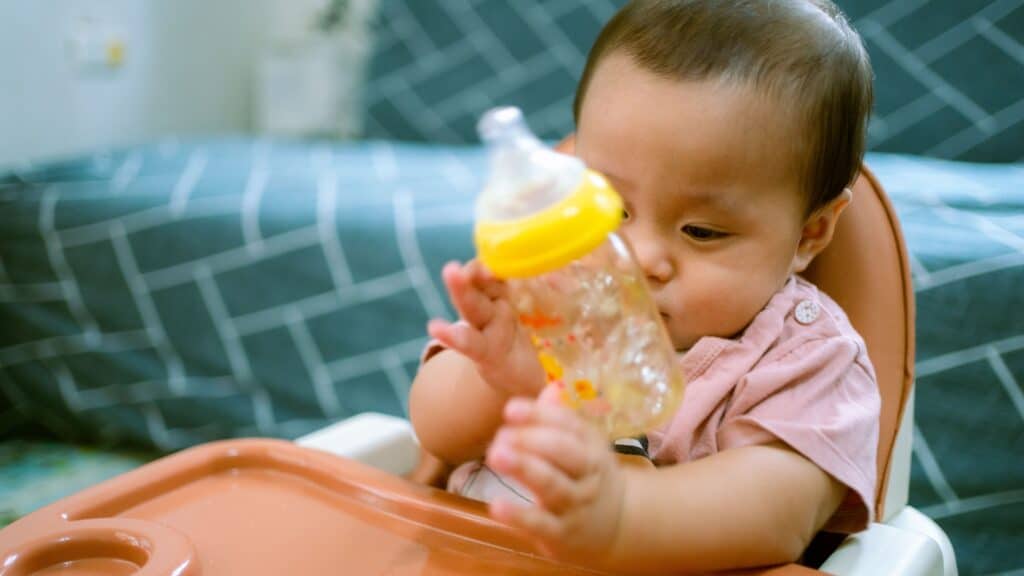Understanding the role and necessity of water fluoride in promoting the healthy growth of an infant is crucial for every parent. It not only aids in carrying out several physiological functions, but also, to an extent, defines their overall health. Water regulates body temperature, aids digestion, and flushes bodily waste, acting as an indispensable resource for baby’s health. Moreover, it contributes largely towards maintaining the unparalleled softness of a baby’s skin, a cherished trait, by providing proper hydration and essential nutrients.
In this blog, we delve into the importance of water for the healthy growth of babies while simultaneously exploring the concerns surrounding fluoride levels in drinking water. Discover the profound role fluoride plays in dental hygiene, from preventing tooth decay to contributing to tooth strength. Learn about the historical context behind the addition of fluoride to water and the pertinent ethical conundrums this practice faces. We will also discuss the impacts of excessive fluoride, particularly in babies, and guide you in choosing the best type of water to provide for your baby.

Water: Essential for Healthy Growth
Water is incredibly crucial for your baby’s growth and development. It aids in multiple physiological functions, including supporting the kidneys – organs that regulate water balance and waste filtration. Inadequate hydration could impede these critical processes, leading to potential waste accumulation in your baby’s body. The importance of urine output in babies cannot be overlooked; water plays a critical role in allowing babies to excrete waste substances through urine, consequently minimizing toxic effects.
Meanwhile, water also plays an essential role in maintaining your baby’s skin health. Babies are known for their soft and plump skin, a trait that owes much to high water content. When properly hydrated, your baby’s skin becomes more flexible and maintains its integrity, supporting healthier development of skin and underlying muscle tissue, and promoting overall growth from birth.
However, failure to hydrate adequately might result in grave health issues, among which dehydration is foremost. Dehydration sets in when the water level in the body drops below a requisite threshold. This condition can trigger a blood pressure drop in your baby and complicate their breathing, making it challenging to oxygenate their vital organs.
If left unchecked, this lack of hydration and resulting dehydration can escalate into severe health challenges. These can range from kidney failure to heat injuries like heatstroke, and seizures due to electrolyte imbalances. Chronic dehydration could also thwart physical and cognitive development in babies, setting them on a dire health trajectory at an early age.
So, it is paramount that your baby has access to adequate hydration. However, please note that breast milk or formula provides sufficient hydration for babies, and water as an additional drink should be included only beyond six months of age. Always consult a healthcare professional if you’re concerned about your child’s hydration.
What Is Fluoride?
Fluoride is a naturally occurring mineral found in various sources, including food and water. It has gained prominence for its significant role in dental health, resulting in its addition to many public drinking water supplies. Fluoride’s main claim to fame is its capacity to prevent tooth decay and facilitate the development of healthy teeth.
Many oral care products, such as toothpastes and mouth rinses, regularly feature fluoride in their list of ingredients. The rationale behind this lies in fluoride’s strength-enhancing properties for tooth enamel. Enhanced tooth enamel plays an instrumental role in reducing susceptibility to cavities.
When fluoride gains access to the tooth enamel, it merges with calcium in the enamel structure and forms an extremely hard substance known as fluorapatite. Not only does fluorapatite act as a fortress for your teeth against acid attacks, but it also plays an invaluable role in aiding the reconstruction of damaged enamel.
Fluoride’s importance goes beyond just tooth decay prevention. The process of demineralization, or the breakdown of tooth enamel by acids, can often leave teeth vulnerable. However, fluoride bolsters remineralization, a process that repairs the enamel by depositing eroded minerals back onto the tooth surface.
The incorporation of fluoride ions and their transformation into hydroxyapatite to form fluorapatite creates a stronghold. Fluorapatite, being more acid-resistant than its predecessor, proves to be a robust reinforcement that shields teeth from subsequent acid attacks.

Furthermore, fluoride takes on a protective role, fortifying the tooth enamel, which is vital in fending off plaque and resisting demineralization. But its function is not limited to defense alone. In situations where tooth enamel undergoes acid-induced erosion, fluoride can stimulate the remineralizing power to rebuild the protective layer, keeping teeth healthier and cavity-resistant.
All in all, fluoride, whether sourced from your toothpaste, mouth rinse, or standard drinking water, is a critical contributor to maintaining your oral health and safeguarding against tooth decay. Despite its advantages, however, it is key to use fluoride responsibly because overdosing could lead to dental fluorosis, especially in young children. As a rule, always turn to dental professionals for guidance on the appropriate use of fluoride.
Why Fluoride Is Added to Water
Fluoridation of water is the controlled addition of fluoride to a public water supply. It aims to help small children develop strong teeth and reduce tooth decay. It has been used in many countries since the 1950s and is endorsed by many dental and health organizations. The use of fluoridated water to prevent dental caries has long been controversial because it raises ethical issues that some people find troubling.
Water fluoridation aims to increase the amount of fluoride that people are exposed to throughout life. Fluoride occurs naturally in all parts of the earth but not in concentrations particularly beneficial for teeth. In order to increase exposure to fluoride without having people ingest large amounts directly (which would be dangerous), the practice of adding it to drinking water was invented.
Fluoridated water has been a part of American life for over 70 years and has been shown to reduce cavities by as much as 25% in children’s teeth who are at high risk for cavities. In the United States, oral health has improved since many years ago. Although cavities are still common among children, community water fluoridation is one of the most cost-effective ways to prevent cavities.
Effects of Too Much Fluoride In Babies
Choosing the right type of water to use when preparing your ready-to-feed formula can be confusing. Tap water, mineral water, regular bottled water, and distilled water are all great options. You may have yet to consider whether or not the water you choose is fluoridated or fluoride safe.
It’s a common question if fluoridated tap water is safe for babies. Experts believe that a considerable amount of fluoride added can cause problems, especially for formula-fed babies.
The Centers for Disease Control and Prevention warns against regularly mixing powdered infant formula with fluoridated water. Too much fluoride exposure may cause baby teeth to develop faint white lines, known as dental fluorosis. Both the American Academy of Pediatrics and the American Dental Association have issued statements supporting this claim.
Additionally, a Harvard study has found that too much fluoride can affect a child’s cognitive development. In large amounts, it can have detrimental effects on brain development. According to the study, children living in areas with higher fluoride levels are at risk of lower IQs and other adverse health consequences.
To ensure that your child gets the recommended amount of fluoride, the American Dental Association recommends that all babies receive fluoride supplements from age 6 months. This way, you can ensure that the fluoride levels your baby receives are regulated instead of using fluoridated water which can accumulate over time. Fluoride supplement in pea-sized fluoride drops or fluoride varnish is safe for children as directed by a pediatric dentist.

What Type of Water Should You Give Your Baby?
Taking care of a baby requires vigilant attention to their needs, particularly what they consume, ensuring they’re well-hydrated, and safeguarding their health. A significant part of this care involves providing them with the most appropriate type of water.
Babies, particularly those reliant on baby formula, need the purest form of water for their consumption. Distilled or purified water is typically recommended for babies. These types of water undergo rigorous filtration and distillation processes, effectively eliminating impurities. They do not contain harmful substances or hard minerals that may impact a baby’s developing system. This quality can be especially important when preparing formula, where the purity of water can significantly influence the nutritional content and safety of the baby’s food.
If distilled or purified water isn’t readily available, an alternative involves boiling the accessible water source at home. This process aids in eliminating potential contaminants from the water, ensuring its safety for the baby’s consumption. To boil water for a baby’s use, it’s recommended that the water be brought to a rolling boil for around one minute, making sure it reaches a temperature where harmful bacteria and parasites can’t survive. After boiling, the water should be allowed to cool to a safe temperature before it is used.
Moreover, it may be advisable to avoid fluoridated water for infants as excessive intake of fluoride might lead to dental fluorosis, a condition that causes discoloration of the teeth. Despite fluoride’s benefits in preventing tooth decay, infants might be getting enough of the mineral from breast milk, formula, and infant foods.
Providing your baby with distilled, purified, or thoroughly boiled water is cardinal to maintaining their hydration and promoting their overall wellbeing. Fluoridated water, while beneficial for older children and adults, might warrant a cautious approach when it comes to infants, due to the risk of dental fluorosis. As always, your healthcare provider can offer guidance tailored to your baby’s specific needs, ensuring safe and healthy growth.
Tips on Choosing a Fluoride-Free Water for Infant Formula
When your baby is ready to start drinking water, you may wonder which type of water you should buy. While there are many different types of bottled water on the market, some are better than others for your baby.
Here are a few tips on choosing fluoride-free water for babies:
1. Check with the local water companies in your area to see if the municipal water supply has fluoride. If so, consider switching to a different source of water that doesn’t contain fluoride.
2. Look at the list of ingredients on the water bottle you’re considering buying. If it contains sodium fluoride or sodium hexafluoro silicate, it’s likely fluoridated. If it doesn’t have these chemicals, you should be good!
3. Evaluate your local grocery store. You may think that since they sell water, it’s safe and healthy for your baby. However, many grocery stores are selling reverse osmosis water with added minerals. This means there is still a tiny amount of fluoride in it.
4. Buy distilled or purified bottled water instead. It contains no chemicals, so it’s the safest bet if you want something with no additives.
5. Boil water before using it for your baby’s formula or other drinks. This will ensure that no bacteria or other harmful substances have been added to it during its processing or transportation process.
6. Talk with your doctor. Your doctor can help ensure that your baby’s diet and nutrition, including their drinking water, are safe! If you’re worried about what kind of water will be best for your child’s health, talk with your doctor about what options might be best for them.

Conclusion
In conclusion, ensuring an infant’s health and growth involves a multifaceted approach, with hydration playing a significant part. Healthy hydration in infants is critical for various bodily functions, and it is vital to choose the safest, most appropriate water for your baby. Plain water should not be given to babies under six months old, and when they do start consuming it, ideally, the water should be distilled, purified or thoroughly boiled. Regarding fluoride, while it plays a crucial role in promoting dental health, overdosing might lead to dental fluorosis and other adverse effects, particularly in infants. Hence, it’s advisable to adopt a cautious approach towards using fluoridated water for infants.
The choice of water type is crucial when preparing formula for bottle-feeding infants. While fluoride deficiency may be detrimental to teeth development, it is recommended to avoid an excess of fluoride in baby formula. If fluoridated tap water is used, ensure it is done under professional advice, and fluoride intake is regulated properly to avoid dental fluorosis or other cognitive implications. In the end, turning to healthcare and dental professionals for guidance on these significant matters will deem advantageous, ensuring the healthy growth and development of your baby.
Thanks for reading! We hope this article helped you learn more. If you have any questions, please leave a comment below.



